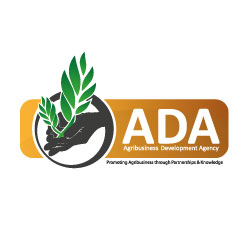In conversation with
Dr. Thulasizwe Mkhabela
Acting CEO | ADA Agribusiness Development Agency

FDI Spotlight: The agribusiness sector in South Africa has, in the past, struggled with integrating the value chain and value addition, on the Small, Medium and Micro-sized Enterprises level. How do you as the ADA engage with stakeholders on all levels to create an integrated value chain in the agribusiness sector?
Dr Thulasizwe Mkhabela: Creating an integrated value chain has been our goal since the organisation was established.
However, in all honesty, it has not been easy to achieve. Everyone talks about an integrated value chain approach; however, one problem is knowing where in the value chain do you begin. For years the focus has been on the primary production and the other value addition sectors have often been neglected. Once you take your eyes off the primary production, you risk losing throughput because there is nothing to add value to if you do not make sure you have primary production.
Therefore, what we have been trying to do is focus on a few commodities as opposed to all of them at once. Our approach is to succeed with those few products first and add more until all of them are done thus an incremental approach is advocated.
So far, we have seen positive results within the pork industry. We have been training youngsters interested in the pork industry and have collaborated with Dalum Landbrugsskole, a Danish college in Odense, to give them the best possible training. Denmark has one of the best pork industries in the world, and we send our trainees to the college for ten months. The idea behind this is to put our farmers and producers on the same level as the best the world in terms of EU standards through the skills they learn and training they receive.
The world is not only interested in eating meat; people want to know how the products are produced and what the ethics behind the processes are. Therefore partnering with Denmark was a no-brainer – they are a leader in ethical farming and the production of meat products. The EU standards are based on what they do.
Our current goal is to set up an academy that encompasses the entire value chain in terms of piggery. For example, we want to start with on-site feed production and teach students how to formulate the rations, how to breed pigs and everything in between all the way to the slaughtering and processing of the meat. One goal we want to achieve with this academy and the training we want to offer is to improve the overall quality of our pork products thereby having a critical mass of skilled next generation farmers and agribusiness entrepreneurs.
With that in mind, we have started negotiations with the relevant international authorities and local departments to allow the genetics of Danish pigs into South Africa. For a long time that has been a captured market and we may not bring pig genetics from abroad into the country.
Another long-term goal we want to achieve through the academy is to train our students as opposed to internationally. It is expensive to send our trainees to Denmark each year, and we are spending around R10 million to do so. It is much more cost effective to bring a professor or expert from Denmark to our students. One benefit, in particular, will be that more students will receive the training and education.
We are expecting the academy to operate in 2018. We have completed the business plan with our Danish partner, the funding from the KwaZulu-Natal government has been secured, and construction set to begin in October or November this year.
What potential do you see regarding international investment partners, regarding this academy, and what are the benefits of investing in this project for an international shareholder?
Dr Thulasizwe Mkhabela: The office of the CEO and our marketing department are working hard to make sure that people know of the opportunity to invest. We do not have a preference; anyone who wants to take part is more than welcome to do so. South Africa is no longer a donor country; we are not looking for donations or handouts; we want investors who we can interact with and who can share in the growth of the economy.
Those who invest in our academy project will get access to a captured market. South Africa imports its pork in frozen form from Canada, Brazil and elsewhere. Therefore there is massive potential to grow the market locally, especially given the amount of pork South Africans consume every year.
The opportunity to become a large pork exporter into Africa, specifically the SADC region, is also massive. We also want to drive the potential of exporting to the EU regions; it is a gap we as ADA have seen in the market, and we want to make sure possible investors know the benefits of investing.
What is the significance of the agribusiness sector in South Africa on a socioeconomic level and do you believe South Africans understand the benefits of investing in the industry?
Dr Thulasizwe Mkhabela: I do not think the majority of South Africans, especially the black population, understand what farming and agriculture can do for them and the country. The majority of black people have been taught to believe owning expensive cars and working in big air-conditioned office buildings is sure sign of having attained economic success.
It comes back to education: we need to teach those in the rural communities especially and make them aware of how profitable, and successful agriculture in South Africa can be. People also need to understand the impact of the country’s history on this sector. The current government started the land reform programme which is overloaded with objectives, thus should not be understood as trying to right the wrongs of Apartheid by giving land to black people.
The government compensates people within the programme so they are not giving land away or taking it from others. The government also needs to implement a comprehensive training programme when ownership of a farm is changed. You cannot put someone in charge and expect them to deliver the same results as the previous owner when they have never had the proper training, education or exposure to farming as a business
Agribusiness has the potential to help many South Africans, improve the current state of affairs, and grow the economy. We need to do things correctly though, especially regarding the land reform programme. Besides educating new beneficiaries, there needs to be a handover of equipment, knowledge in using them and the injection of capital into the farms. In a nutshell, both pre- and post-settlement comprehensive support programmes are indispensable preconditions for success amongst the new crop of farmers and landowners.
This is where the current government can learn from the previous administration: it is unnecessary to take everything away and break everything down to correct the wrongdoings of the past – one should not throw out the baby with the bath water. Use the knowledge and equipment systems which were in place and proved to work to further the South Africans of today and leave the bad behind.
